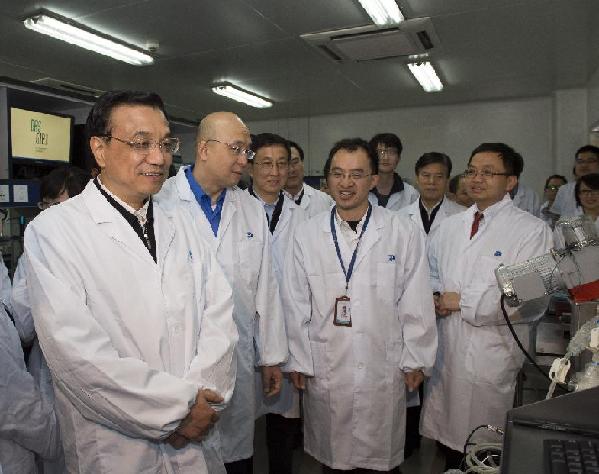Premier Li calls for courage, wisdom in upgrading economy

Premier Li Keqiang on Friday called for greater courage and wisdom in pushing forward economic transformation and upgrading to achieve more sustainable growth in the long run.
Li made the remarks at an economic work conference in Shanghai after conducting a research tour in the Yangtze River Delta region.
Li said his tour found the economic climate in the Yangtze River Delta region to be generally stable, but given complicated internal and external environments, latent risks remain despite positive factors.
While maintaining steady economic growth, China should look to long-term interests to intensify efforts to foster an "upgraded version" of the economy, Li noted after listening to reports from government officials in Shanghai, Jiangsu, Zhejiang and Anhui.
The Chinese government has set the full-year growth target for 2013 at 7.5 percent, and it aims to double the 2010 per capita GDP and personal income by 2020.
"If we do not take the initiative to upgrade, steady growth will be hard to achieve and harder to sustain," Li said.
To foster that model, Li stressed the importance of boosting domestic demand, as it serves as a significant basis for sustainable development amid the constantly changing economic landscape.
In the face of growing competition, industrial overcapacity and rising material costs, China should enhance support to enterprises to accelerate restructuring and raise the contributions innovation makes to the economy.
During the restructuring process, Li urged that efforts be made to unleash job opportunities in the service sector and adopt measures to push green growth to ensure that people have clean air and water and safe food.
Besides the role of macro-economic policies, China should rely on reforms to stimulate vigor and creation within society, he said.
China should do away with improper policies and regulations that have fettered economic growth, as well as cut operational costs for enterprises to allow them to compete in a more fair market, Li noted.
"More importantly, we should accelerate transforming government functions, give market forces a greater role and reduce burdens on enterprises to trade government interference for more vigor in the market," Li added.
The latest emphasis on market-oriented reforms came as Li has named the transformation of government functions as the first task for the newly-elected State Council, China's Cabinet.
Transforming government functions will be a "great remedy" for promoting non-government investment and employment, as well as for improving companies' competitiveness and boosting economic and social vitality, he said at a previous meeting.
On Friday, Li said he hopes the Yangtze River Delta, the forefront of China's reform and opening-up, could spearhead the reforms and set an example for the rest of the country.